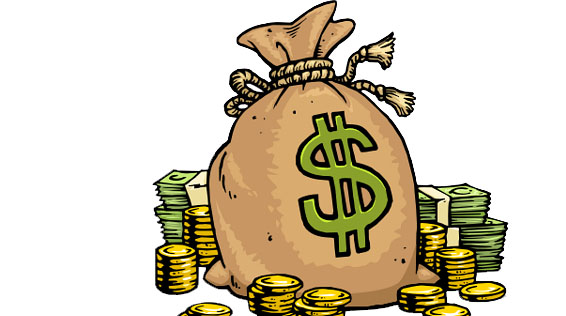
The Sunday Mail

Emotional spending is the act of buying things based on how you’re feeling, rather than with logic or necessity. Buying a new pair of shoes that have your name on them or a celebratory outfit when you land a promotion at work is fine.
But if you find yourself giving in to compulsory urges to buy something new, or you need a distraction when you’re upset, it might be time to recognise that those scenarios may be symptoms of a bigger problem in the making.
Signs of emotional spending
Gerald Zaltman, a business professor at Harvard Business School, found that 95 percent of purchase decisions are subconscious. So while emotions come into play, what matters is how much they dictate the purchase.
There are signs that can help you know if you’re emotionally spending. Lisa Duke, an accredited financial counsellor with Lisa Duke Financial Coaching, told The Balance via email that there are a few specific areas to look at.
“Unopened packages, unworn clothing (perhaps even with the tags still on), hiding purchases from a spouse or significant other, [and] referring to shopping as retail therapy,” Duke said.
“Then it’s a problem,” Brittany Waters, a financial coach with Ready Set Life, told The Balance via email.
“If you’re going to be in debt, it should be for something you chose, not from something you did impulsively.”
Bobbi Rebell, author of “How to Be a Financial Grownup” also told The Balance via email that it’s important to recognize how you feel when your order arrives in the mail, too. According to Rebell, if you have a feeling of disappointment when the item arrives, and it doesn’t solve the problem, it might be a sign that there’s a bigger problem.
When it becomes
a problem
Realising you’re spending emotionally is one thing, but recognising that it’s out of control is another. You might think small indulgences are harmless compared to big-ticket items, but not necessarily.
“Don’t think an impulse vacation is the only kind of emotional spending that breaks the bank,” Dino Selita, co-founder and president of The Debt Relief Company, said.
“In fact, daily small emotional purchases can do much more harm. After all, $50 spent on Amazon each week might not seem bad, but it does end up costing you $2 600 by the end of the year.”
Small purchases can be as problematic as large ones because often they are more habit-forming. Matthew Miller, founder and wealth advisor of Upleft, said some families may actually become bankrupt by home shopping addictions.
“For example, I have seen one case where a woman spent hundreds of thousands of dollars purchasing costume jewellery that she was seeing on television,” Miller said.
“Do you make purchases whenever you’re not feeling happy?” Rebell said.
“Are you spending money you can’t afford to spend?”
Those are the questions you need to ask yourself.
Risks of emotional spending and how to manage them
Emotional spending may feel good, but like a sugar high, the crash can be hard and costly. It can lead to massive debt, the inability to save money, poor credit, and more. In fact, the costs aren’t only financial.
“A lot of times, spouses end up hiding their purchases, including receipts, until the other partner ends up finding out about transactions online,” Jason Fierstein, a psychotherapist with Phoenix Men’s Counselling said.
“This can quickly create distrust, anger, and damage to the relationship or marriage.”
With so much at stake, managing emotional spending is a must. Change your mindset and know that the stuff you buy likely won’t bring lasting joy.
The Balance via email that the best way to curb emotional spending is to set a budget and stick to it.
Lean into emotional purchases by planning your spending before the month starts.
“If you are emotional about shoes, spend the time to make sure you are allocating your income to cover expenses and then just plan to spend the $75 on the shoes,” Scott Cuyler, author of “Spreadsheets to Bedsheets” said.
“Get emotional in that shoe store and feel good about your purchase. That is the power of planning and not driving your finances through the rear-view mirror.”- The Balance.



